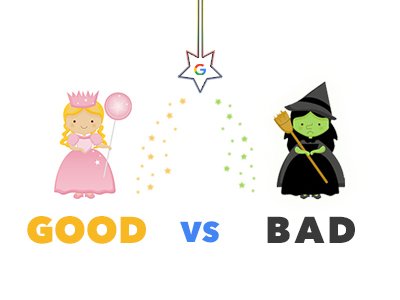Reviews are an essential part of our online life, but in order for them to be helpful to others – and ourselves – we need to use them properly. Nowadays, more and more people check and contribute to reviews before and after using a service, buying a product, or engaging with a business. Online reviews can make or break a business; research shows as many as 90% of people regularly check reviews and the majority trust them as much as a personal recommendation.
Unfortunately, both reviewers and the businesses they review are guilty of leveraging this immensely important tool improperly, sometimes with complete disregard for the potential negative consequences.
With great power comes great responsibility

When you’re typing away on a computer or through your phone, that feeling of anonymity and impersonality can send your fingers flying in ways your spoken words never would. This can be especially true when you feel wronged by a particular establishment or employee. However, before writing a raging review, it’s imperative you remember what you say can really impact your target. The recipient may not always be a big business who can easily bounce back. Sometimes, it’s a mom-and-pop shop that will be gravely affected by a glaring review.
Take a moment before you hit send to make sure your review is fair, accurate and relevant for other users, so they can make a smart judgement based on the feedback. For example, if you go to a restaurant and realize you’ve bit off more budget than your wallet can chew, it’s not necessarily that the establishment is, “outrageously expensive.” Perhaps, it’s just not the right fit at this point in your spending cycle.
Although you may find it funny to give a 1-star review because you “had to dine with family,” consider how humorous it is to a business owner whose Google My Business rating has decreased because of your review.
From Angry rant to Accurate Review
Instead of accusing the restaurant of overcharging its patrons, consider whether or not the food and service were worth the hefty price tag. Did they use farm-to-table ingredients and deliver on big flavours and portions? Was the service highly specialized and the environment intimate and elegant? If so, perhaps a better way to frame your review is to honestly admit the restaurant is pricy, but the experience is worth the cost.
It’s not just reviewers, but businesses that need to take online reviews more seriously.
Whether you receive a totally cringe-worthy review from someone who misrepresents your business or you get the great notification that someone has said something wonderful about your product, your business needs to act. Not only are potential customers influenced by other people’s reviews, but they will take away a lot about your business based on how you reply.
If the review is awful, turn this unseemly encounter into an opportunity to demonstrate your dedication to customer care.
Address the review directly: if there are any comments that are in direct opposition to your policy or code of conduct, respond to them in a calm and collected manner. The more specific you can be about the experience, the better. If possible (and without compromising your integrity and business value) offer to make amends. Provide contact information for a manager or the owner and welcome the customer back for an enhanced experience in the near future.
If the review is awesome, celebrate it. Thank the customer sincerely for taking the time to share their feedback and encourage them to revisit with their loved ones. Share their superstar review on your social profiles and do your best to remember that customer, so you can thank them in person. Also, don’t forget to connect with any staff members who were mentioned (specifically or inadvertently) and say, “Thank you,” for contributing to a great customer experience.
Always remember that it isn’t only the person who wrote the review that will see your response. Future customers will look at your response to determine if they should come to your location.
It is hard to be a business owner and sometimes people leaving a review are unfair but accusing them or insulting them (yes this happens!) will only hurt you in the long run. Responses like, “I have no patience for people who hide behind computer screens” will not earn you any future business.
Online reviews aren’t going anywhere, so let’s ensure they’re adding value to our lives, businesses, and interactions with others.
Reviews should not be synonymous with hot gossip. They should, for the most part, be reliable, readable, and helpful. It’s not good versus evil in the realm of reviews, but rather just regular people trying to do their best, spend their money wisely, and access the products and services they need based on the input of other well-meaning people.
Let’s do better as online reviewers and as businesses who have a responsibility to deliver on their customer commitments and uphold their brand’s integrity in-person and online.
Want to learn more about the strength of reviews and how to make the most out of them?



